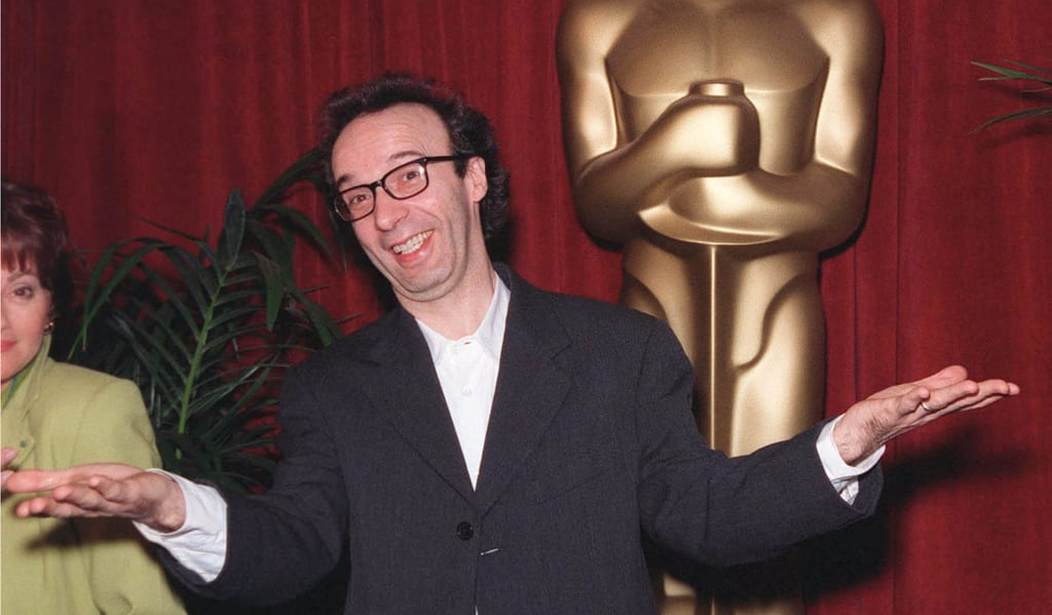Welcome to Part Four in my series on the most undeserving Oscar winners—we’ve looked at Best Supporting Actress, Best Supporting Actor, and Best Actress so far. Now, let’s take a gander at the Academy’s six biggest mistakes in the Best Actor category. Here we go…
6. Art Carney, Harry and Tonto (1974)
The decade of the 1970s was an interesting era for the film industry. A new young crop of baby boomer actors, writers, and directors challenged the order of the business, and the older generation—which included most Academy voters—didn’t always cotton to it. This generational tension may have netted Art Carney his Oscar.
In 1974, Carney starred in Harry and Tonto, a quirky, early ’70s time capsule of a comedy about an old man and his cat. It’s not the world’s most memorable bit of cinema, and it’s full of cliches of the time period.
Carney gave a decent performance in the film, and when the Oscar nominations came out, he found himself surrounded by four actors from this new generation—actors who largely disdained the glare of the spotlight, didn’t play the press game, and didn’t necessarily live for awards season. The older generation of Academy voters likely gave Carney the Oscar because he fit their notions of a movie star in the way this new generation of actors did not.
Who should’ve won? Albert Finney, Dustin Hoffman, and Jack Nicholson all shone in widely differing roles that year, but the most impressive and most lasting portrayal that year belongs to Al Pacino. He should have won the Oscar for The Godfather, Part II in a cakewalk.
5. Kevin Spacey, American Beauty (1999)
These days, we think of Kevin Spacey as Frank Underwood, but in the ’90s, he was a bona fide actor’s actor on the big screen. Four years after his remarkable Best Supporting Actor win for The Usual Suspects, Spacey starred in American Beauty, in which his character, Lester Burnham, undergoes the worst midlife crisis ever. Burnham falls for his teenage daughter’s best friend, quits his advertising and writing job to work at a fast food restaurant, and later fends off a homosexual advance from his supposedly gay-hating neighbor.
Language warning:
Spacey gives a solid performance in a non-redeeming film, and it’s obvious that the strange momentum the film had carried him along as well. Oscar voters had somehow fallen for American Beauty despite its dull darkness, and as a result, Spacey walked home with a statuette.
Who should’ve won? Russell Crowe did tremendous work in The Insider, and Denzel Washington’s performance in The Hurricane was exciting. But the best acting that year was Richard Farnsworth’s understated, surprising turn in The Straight Story. The Oscar should have gone to Farnsworth that year.
4. Al Pacino, Scent of a Woman (1992)
Sometimes the Academy masks a lifetime achievement honor under the guise of a competitive award. Such was the case of Al Pacino in 1992. Think of all the Oscars Pacino could have won, but didn’t: Serpico, Dog Day Afternoon, the entire Godfather trilogy, just to name a few. And then came Scent of a Woman, in which Pacino plays a blind Army colonel who befriends the prep school student who takes care of him over a Thanksgiving break trip and later defends the young man in a disciplinary hearing.
The movie itself is no great shakes, and Pacino chews the scenery in the most bombastic way, bellowing and spewing profanity like no other.
Language warning:
Pacino was also a nominee for Best Supporting Actor for his role in Glengarry Glen Ross, but Oscar voters felt compelled to honor him with the statuette for Scent of a Woman. Was it a lifetime achievement award in disguise? Did voters feel like it was their last chance to give Pacino an award? We’ll never know.
Who should’ve won? Robert Downey, Jr. was wonderful in Chaplin, and both Denzel Washington in Malcolm X and Clint Eastwood in Unforgiven gave tremendous performances. Any of these three would have been worthy winners.
3. Robert Donat, Goodbye, Mr. Chips (1939)
Nineteen-thirty-nine was one of those seminal years in cinematic history, with so many classic films released that year: Gone With The Wind, The Wizard of Oz, Stagecoach, Mr. Smith Goes to Washington, Destry Rides Again…and Goodbye, Mr. Chips?
British actor Robert Donat played a loveable school teacher in the latter film, and though it’s a good film, it doesn’t have the staying power of so many of the class of 1939. It’s a sweet, often sentimental performance, but looking at his competition that year, it’s puzzling how he won.
David O. Selznick, the producer of Gone With The Wind, was so upset that Clark Gable had not won that he tore into publicist Russell Birdwell (and later apologized). But the truth is, it’s still hard to understand how Donat picked up the Oscar when he competed against the star of the dominant film of the year.
Who should’ve won? The simplest answer is Clark Gable; after all, it was the year of the Gone With The Wind sweep, and his was an unforgettable portrayal. If not Gable, James Stewart gave a powerful performance in Mr. Smith Goes to Washington.
2. Tom Hanks, Forrest Gump, (1994)
Tom Hanks is a national treasure, and he deserves an armful of awards for his tremendous performances over the years. But the one that has always escaped me is Forrest Gump. Why do people think this movie is so wonderful? And why is one of Hanks’ lesser roles held up as such a triumph?
Forrest Gump the character boils down to three things: the hideous haircut, the ridiculous platitudes, and one of the worst Southern accents in film history.
How could he deliver such awful lines with a straight face? Forrest Gump was a shoo-in for that year’s Academy Awards, and I’ll never understand why. Of course, one of those awards went to Hanks. The Academy should have saved his second Oscar one more year for Apollo 13.
Who should’ve won? Why is there even a question when Morgan Freeman was nominated for The Shawshank Redemption? At the same time, I’ve always been a big fan of Paul Newman’s performance in Nobody’s Fool. Both men deserved that year’s Best Actor award far more than Hanks.
1. Roberto Benigni, Life Is Beautiful (1998)
Occasionally the Academy voters discover a recipient that personifies everything that’s wrong with the Oscars. No one winner represented the worst of the worst like Italian actor-director Roberto Benigni.
In 1998, Benigni co-wrote, directed, and starred in the Italian-language comedy Life Is Beautiful, in which he portrays a father in a concentration camp during World War II. Let that sink in—a Holocaust comedy.
Benigni had the critics and Academy voters eating out of his hand—largely because of the Academy’s peculiar fascination with films about the Holocaust. Life Is Beautiful wound up winning Best Foreign Film and Best Score, while Benigni won Best Actor. At the ceremony, he proceeded to make a complete fool of himself, possibly causing voters to almost immediately regret their choice.
Who should’ve won? Good Lord, anybody else! But seriously, giving the Oscar to Tom Hanks for Saving Private Ryan seems like a no-brainer, and Edward Norton’s searing performance in American History X deserved some sort of honor. Either one of those would have been far better choices than Benigni.
That’s the list. Who would you have chosen? Share your thoughts in the comments section below.










Join the conversation as a VIP Member